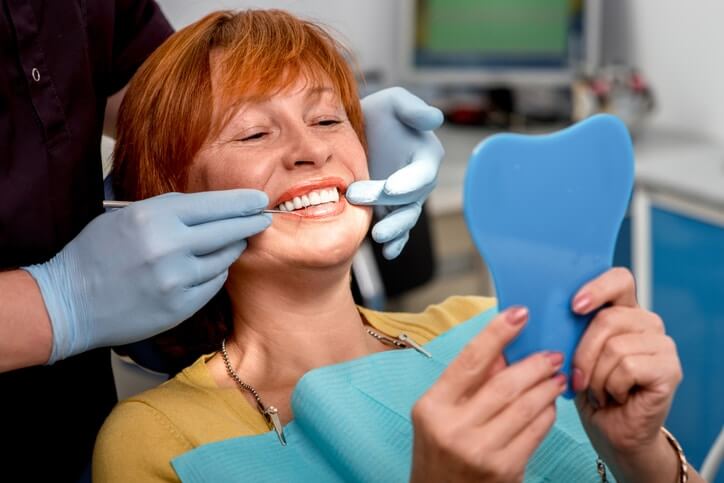Losing a tooth can be traumatic. At first, there’s shock. Then there’s the horrifying realization that you look completely different from what society at large deems attractive when you open your mouth and reveal the gap between your teeth. Your self-esteem is shot, eating and speaking are difficult.Then you hear about dental implants.
The reality is that dental implants are a practical choice: They look and feel like natural teeth, and they allow you to carry on with your life as if losing a tooth never happened. And because the base material fuses well with bone, you can eat whatever you want without worrying about anything slipping or becoming displaced. You can even carry on with your regular dental cleaning routine to keep your new dental implants clean and looking like new.
What Causes Dental Implants to Fall Out?
Dental implants attach to the jawbone through a titanium base. This base fully fuses with bone when the bone cells attach themselves to the metal surface. It’s so reliable, that it’s used to permanently attach artificial prosthetics for amputees.
The dental implant base is placed into the jaw during a dental implant surgical procedure. Once the site heals, the titanium base is fully integrated with the jawbone. This means that if you follow proper hygiene instructions as suggested by your dentist, and are seen for regular follow-up visits and routine dental care, the base stays secured to the bone.
1. Loss of Bone Density
However, there are instances when people lose bone density around the base of an implant. This could be due to an underlying illness (such as osteoporosis, diabetes, or cancer), or from experiencing trauma to the mouth after the implants have been placed.
If this occurs, you would feel pain or inflammation around the dental implant.
2. Poor Oral Hygiene
Another source of inflammation is poor oral hygiene. If the site of the dental implant becomes inflamed or infected, it could result in a condition called peri-implantitis. Failing to brush and floss properly can cause the crown of the implant to become loose around the gum line, allowing bacteria to grow which could lead to bone loss.
Other factors that could result in peri-implantitis include smoking, having a history of periodontitis (advanced gum disease), undergoing radiation therapy, and in rare instances, an allergic reaction to titanium.
What to do if Your Dental Implant Falls Out?
Avoid chewing foods until you are able to see your dentist, and rinse the site where the implant fell out with non-alcoholic mouthwash two or three times a day.
Peri-Implantitis Diagnosis & Treatment
Peri-implantitis is reversible. As soon as you notice signs of the condition, schedule an emergency appointment with your dentist. Do not try to “tough it out” or put it on the back burner. Complications could lead to serious infections inside your mouth, jaw, neck, brain, and blood.
Symptoms of Peri-Implantitis
The following conditions are symptoms of peri-implantitis:
- Redness
- Swelling
- Bleeding
- Pain
- Feeling the implant move
- Pus
DENTAL IMPLANT SPECIALISTS IN DALLAS
If you’re considering dental implants, let Fast New Smile® help you. We offer free consultations and use the highest grade of dental implants nationwide. We’ll match or beat competitor prices, and we provide a lifetime guarantee.
For some procedures, you can leave with a brand new smile on the same day you visit. Contact us today and enjoy your FastNewSmile®.

